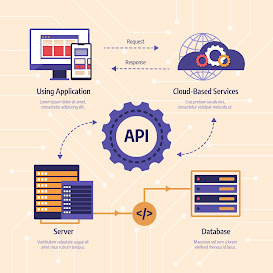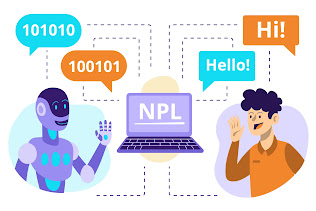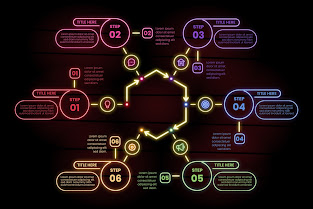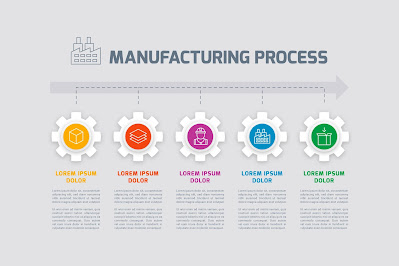Introduction:
In today’s rapidly evolving digital landscape, Artificial Intelligence (AI) is no longer a futuristic concept—it’s a present-day reality that is reshaping industries and driving innovation across the globe. Among the many platforms offering AI-powered solutions, Google Cloud AI stands out as a leader. With its comprehensive suite of AI tools and services, Google Cloud AI empowers businesses to harness the transformative potential of AI to streamline operations, enhance customer experiences, and unlock new avenues for growth.

In this article, we will dive deep into Google Cloud AI, exploring its key features, benefits, and real-world applications. Whether you’re a business leader looking to integrate AI into your operations or a developer aiming to build the next great AI-driven application, this guide will help you understand how Google Cloud AI can be a game-changer.
What is Google Cloud AI?
Google Cloud AI is a collection of services and tools provided by Google Cloud that allows businesses and developers to integrate machine learning (ML) and AI-powered capabilities into their applications and workflows. Leveraging Google’s vast experience in AI and machine learning, Google Cloud AI services are designed to be highly accessible, scalable, and adaptable to a wide range of use cases.
At its core, Google Cloud AI offers:
*. Pre-trained models for common tasks such as image recognition, natural language processing (NLP), and translation.
*. Customizable services that allow businesses to train and deploy machine learning models specific to their needs.
*. AI infrastructure that provides powerful computing resources for training and deploying machine learning models at scale.
Key Features and Services of Google Cloud AI:
1. AI Platform:
The AI Platform is Google Cloud’s comprehensive machine learning development environment. It allows businesses to build, train, and deploy machine learning models at scale. The AI Platform supports both pre-built and custom models, making it ideal for organizations of all sizes and industries.

AI Hub: A repository for sharing AI components and pipelines, enabling collaboration across teams.
AI Notebooks: Jupyter-based notebooks that provide an easy-to-use environment for developing machine learning models.
AutoML: A collection of machine learning tools that enables developers with little experience with machine learning to create superior models tailored to their company's requirements.
2. Vision AI:
Google Cloud Vision AI is a powerful tool that enables businesses to analyze images and derive insights from visual data. It’s widely used in industries like retail, healthcare, and manufacturing to automate image-based tasks.
Image Recognition: Automatically categorize and label images, detect objects, and recognize landmarks.
OCR (Optical Character Recognition): Extract text from images, making it easier to digitize and process documents.
Facial Recognition: Identify and analyze facial features to enhance security and customer experiences.
3. Natural Language AI:
Google Cloud Natural Language AI enables businesses to process and analyze vast amounts of text data, making it easier to extract meaningful insights from unstructured data.
Sentiment Analysis: Understand the sentiment behind customer feedback, reviews, and social media posts to improve user engagement.
Entity Recognition: Identify important entities in text, such as people, places, organizations, and dates.
Syntax Analysis: Analyze the structure of sentences to improve language models and text-based applications.
4. Speech-to-Text API and Text-to-Speech API:
Google Cloud offers Speech-to-Text and Text-to-Speech services, enabling businesses to convert audio data into text and vice versa. These APIs are particularly useful for applications in customer service, transcription services, and content creation.

Speech-to-Text API: Transcribe spoken language into text, supporting a wide range of languages and dialects.
Text-to-Speech API: Convert text into natural-sounding speech, ideal for creating voice-enabled applications or interactive systems.
5. Translation AI:
Google Cloud Translation AI allows businesses to break down language barriers by providing real-time translation services. It supports over 100 languages, making it a go-to solution for global businesses.
Translation API: Automatically translate text between languages, helping organizations communicate with a global audience.
AutoML Translation: Train custom translation models to ensure high accuracy and industry-specific translations.
6. Recommendations AI:
Google Cloud Recommendations AI helps businesses deliver personalized product recommendations based on user behavior. This AI service is especially useful for e-commerce platforms, content streaming services, and any business that relies on personalized user experiences.
Personalized Recommendations: Increase sales and customer engagement by providing tailored product suggestions.
Dynamic Adaptation: Continuously adjust recommendations based on real-time user interactions.
7. Vertex AI:
Vertex AI is Google Cloud's end-to-end platform for managing machine learning models. It allows businesses to build, deploy, and scale AI models faster, while reducing complexity.

Unified AI Workflow: Manage data, models, and predictions from a single platform.
AutoML and Custom Training: Build models using either AutoML or custom training tailored to specific business use cases.
ML Pipelines: Automate the entire machine learning lifecycle, from data preparation to model deployment.
Benefits of Google Cloud AI for Businesses:
1. Scalability:
One of the biggest advantages of Google Cloud AI is its scalability. Whether you’re a small business or a large enterprise, Google Cloud AI can handle large datasets and complex models with ease. Its distributed infrastructure allows you to scale your AI operations as your business grows, without worrying about capacity limitations.
2. Cost Efficiency:
Google Cloud AI allows businesses to optimize costs by offering a pay-as-you-go pricing model. This means you only pay for the resources you use, making it more affordable for businesses of all sizes to adopt AI technologies without significant upfront investments.
3. High Accuracy and Performance:
Google has been at the forefront of AI research for years, and its AI models are some of the most accurate and high-performing in the industry. By leveraging Google Cloud AI, businesses can benefit from state-of-the-art models that deliver better results, whether it’s image recognition, natural language processing, or personalized recommendations.

4. Ease of Use:
Google Cloud AI services are designed to be user-friendly, even for businesses that lack deep AI expertise. Tools like AutoML enable users to train custom models without needing to write complex code, while pre-built APIs allow for quick integration into existing systems.
5. Security and Compliance:
Google Cloud is known for its robust security features, and its AI services are no exception. With advanced encryption, identity management, and compliance certifications (such as GDPR and HIPAA), businesses can trust that their data and AI models are secure.
Real-World Applications of Google Cloud AI:
1. Retail and E-commerce:
Retailers are using Google Cloud Recommendations AI to deliver personalized shopping experiences, resulting in increased sales and customer satisfaction. Additionally, Vision AI helps automate inventory management by recognizing products and tracking stock levels in real-time.
2. Healthcare:
In healthcare, Natural Language AI is being used to analyze patient records and extract valuable insights, improving diagnosis and treatment plans. Vision AI is also being employed in medical imaging to assist radiologists in identifying abnormalities.
3. Customer Service:
Many businesses are using Google Cloud Speech-to-Text and Text-to-Speech services to enhance their customer service capabilities. By integrating AI-powered chatbots and virtual assistants, companies can provide 24/7 support, improve response times, and reduce operational costs.
4. Financial Services:
Financial institutions are leveraging Natural Language AI to analyze vast amounts of financial documents and extract relevant data for compliance and risk management. Additionally, AI Platform is being used to build machine learning models that detect fraudulent transactions.
5. Manufacturing:
In manufacturing, Vision AI is being used to automate quality control processes, identifying defects in products early in the production cycle. This reduces waste, improves efficiency, and ensures higher product quality.

Getting Started with Google Cloud AI:
If you’re ready to take advantage of Google Cloud AI, the first step is to create a Google Cloud account and explore the available services. Google offers a free tier that allows businesses to experiment with many of its AI tools without incurring significant costs.
Once you’re familiar with the platform, consider which AI services align with your business goals. Whether it’s improving customer experiences, automating workflows, or analyzing large datasets, Google Cloud AI has a solution tailored to your needs.
Conclusion:
In a world where businesses are increasingly reliant on data and automation, Google Cloud AI offers a powerful, scalable, and cost-effective solution for harnessing the potential of artificial intelligence. By integrating AI into your operations, you can enhance productivity, improve customer experiences, and unlock new opportunities for growth.
Whether you’re a small startup or a large enterprise, Google Cloud AI provides the tools and resources necessary to stay competitive in today’s AI-driven world. The future of business is AI, and with Google Cloud AI, that future is within reach.








0 Comments